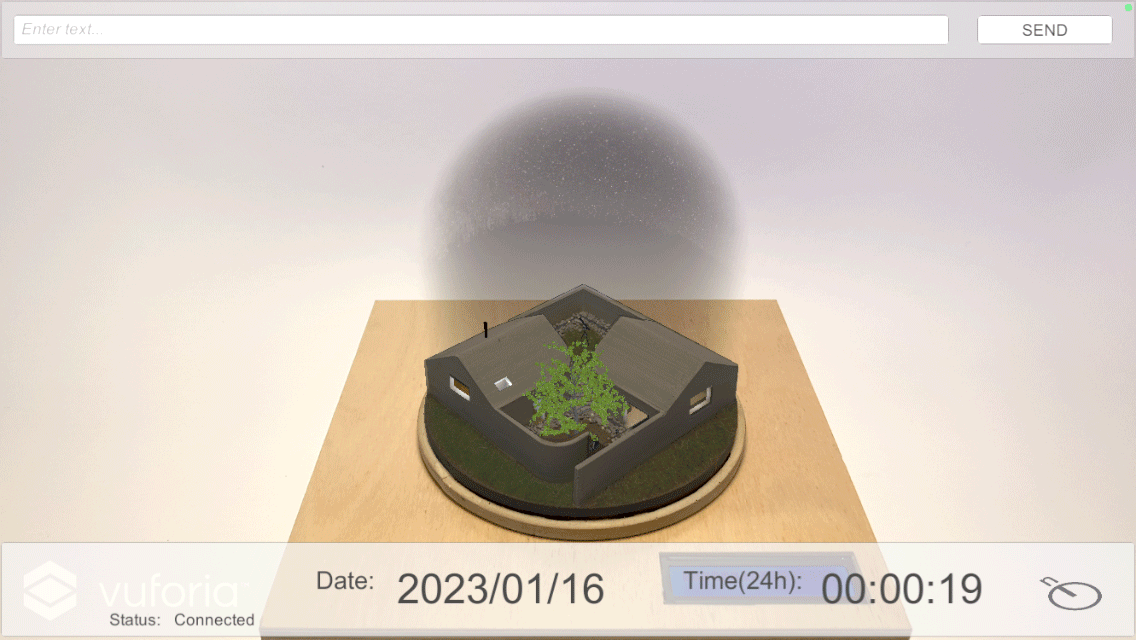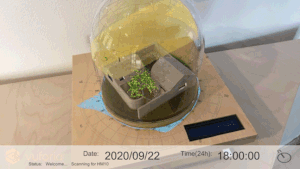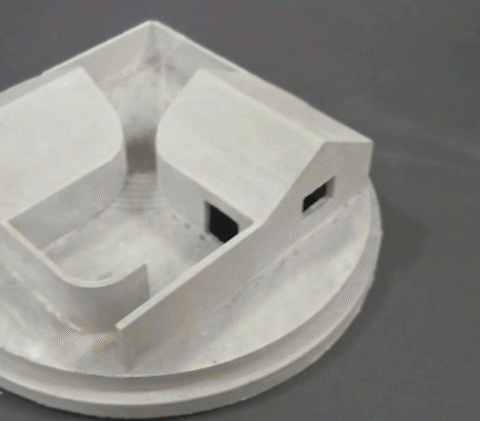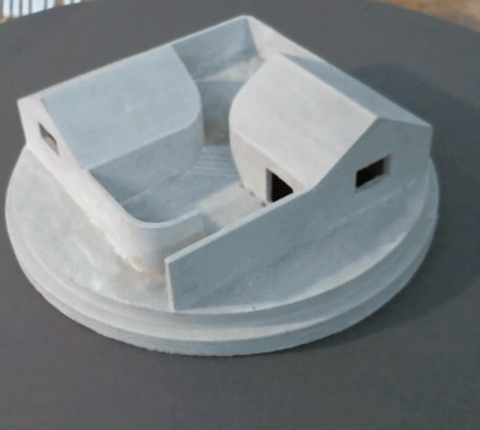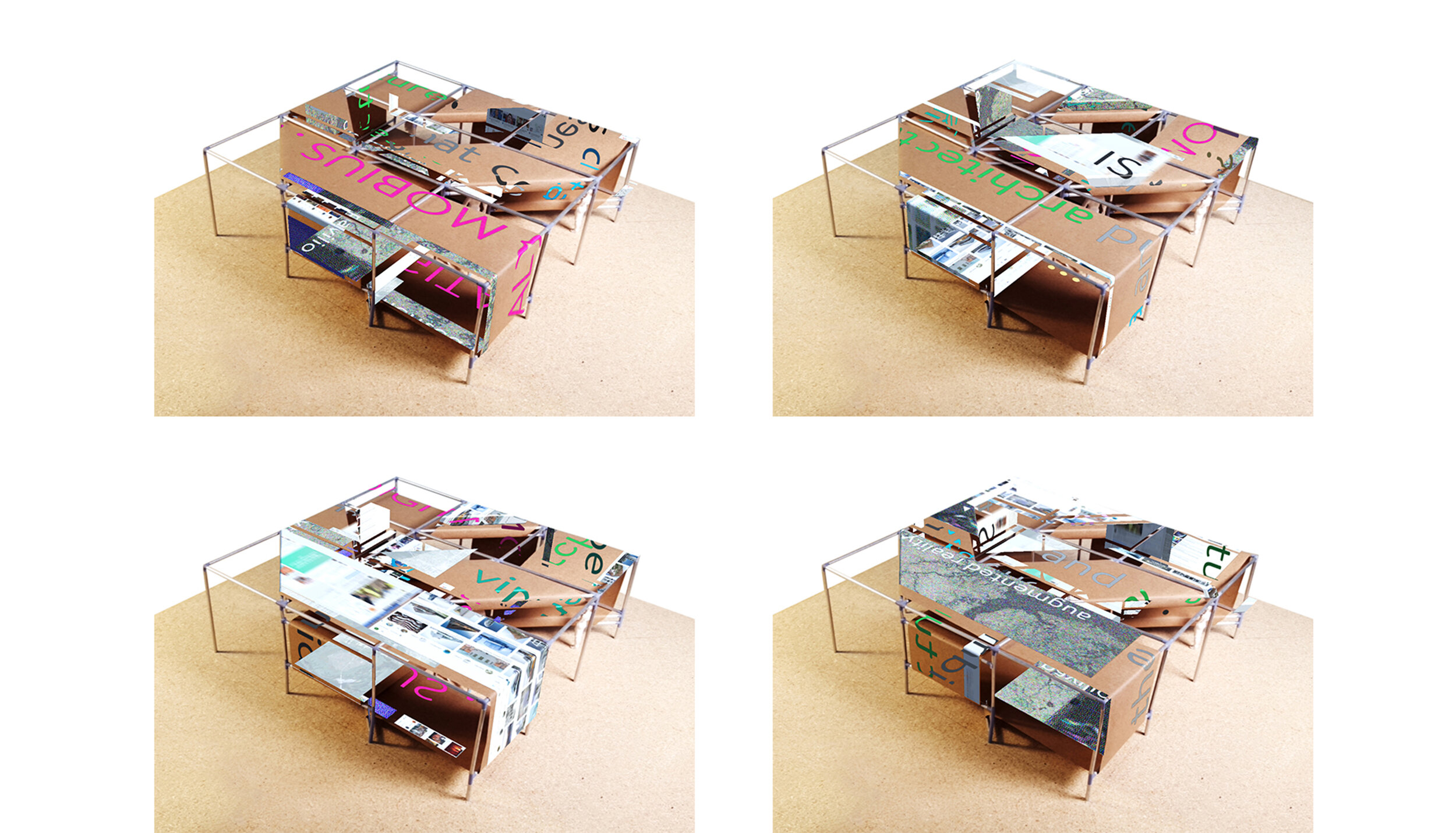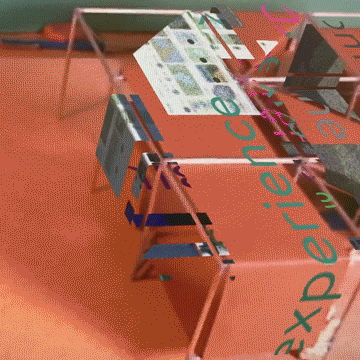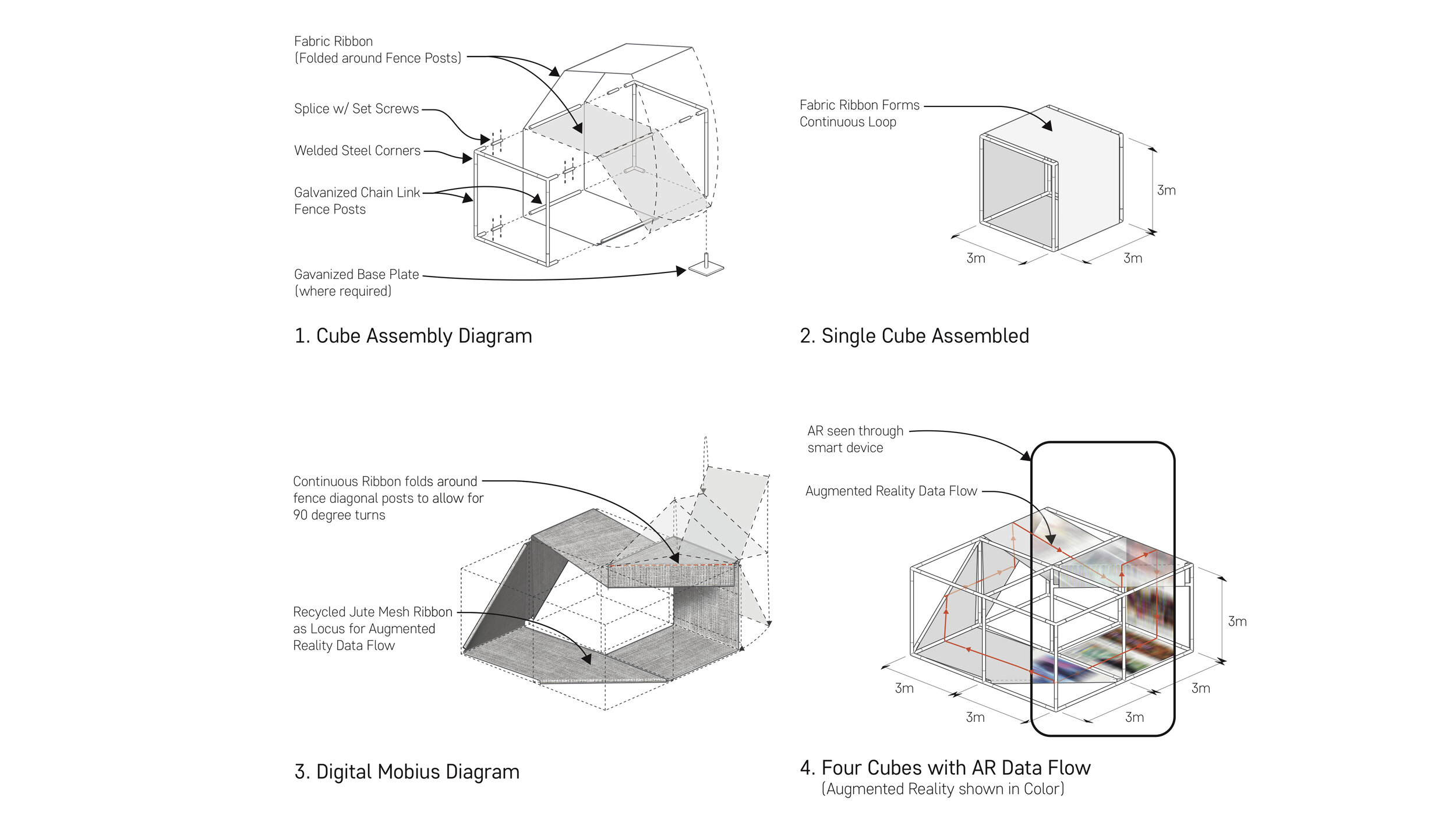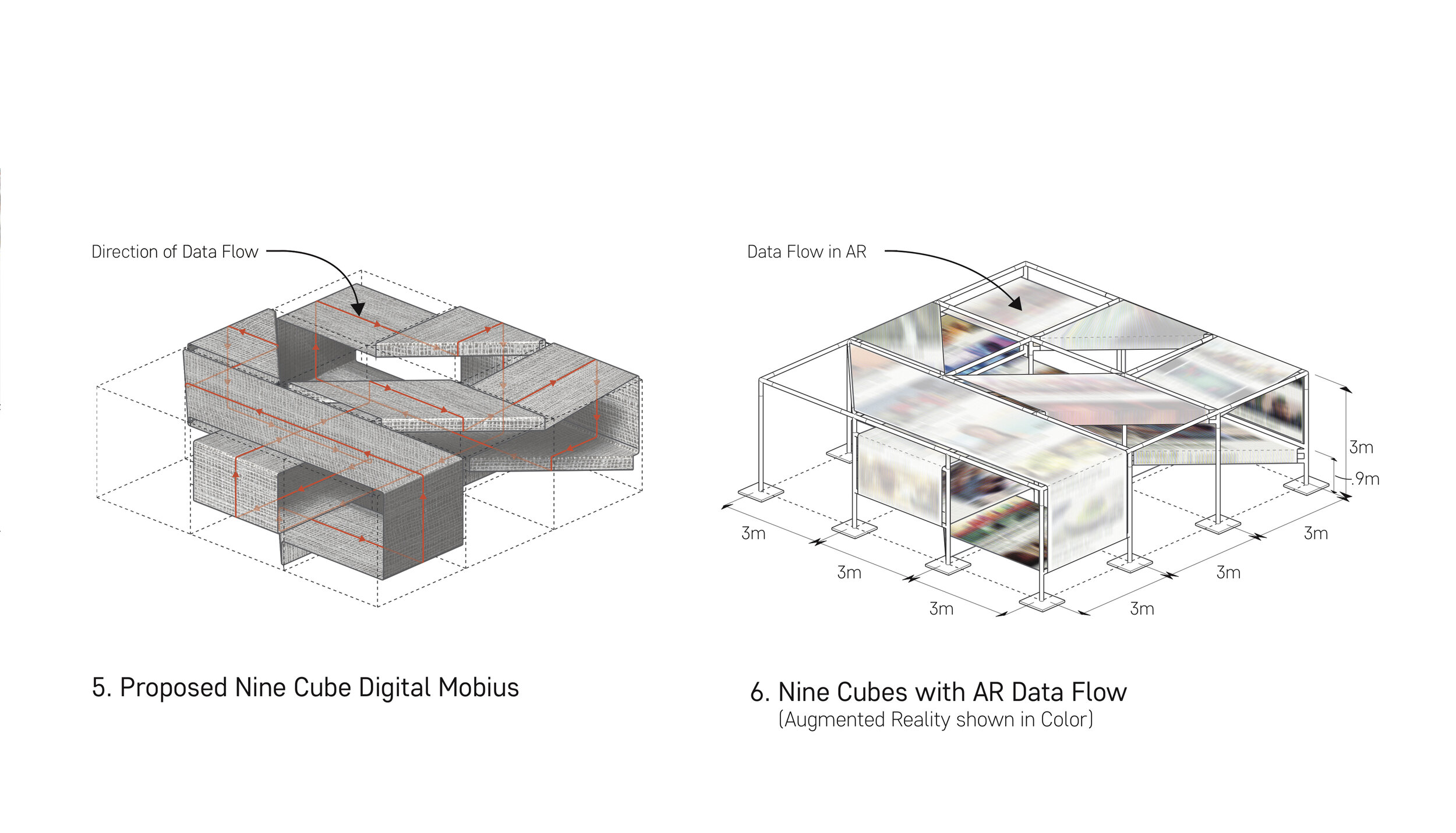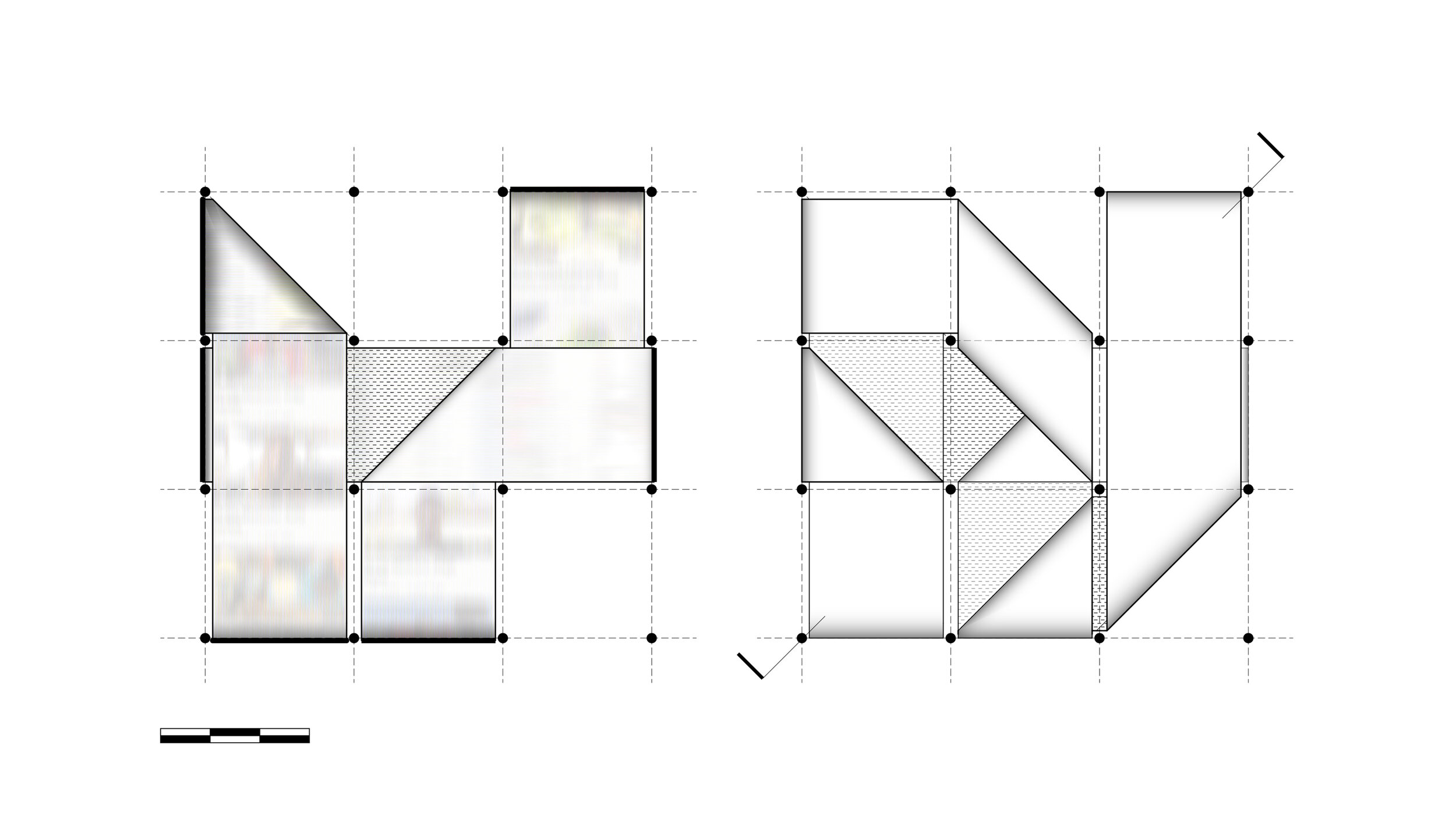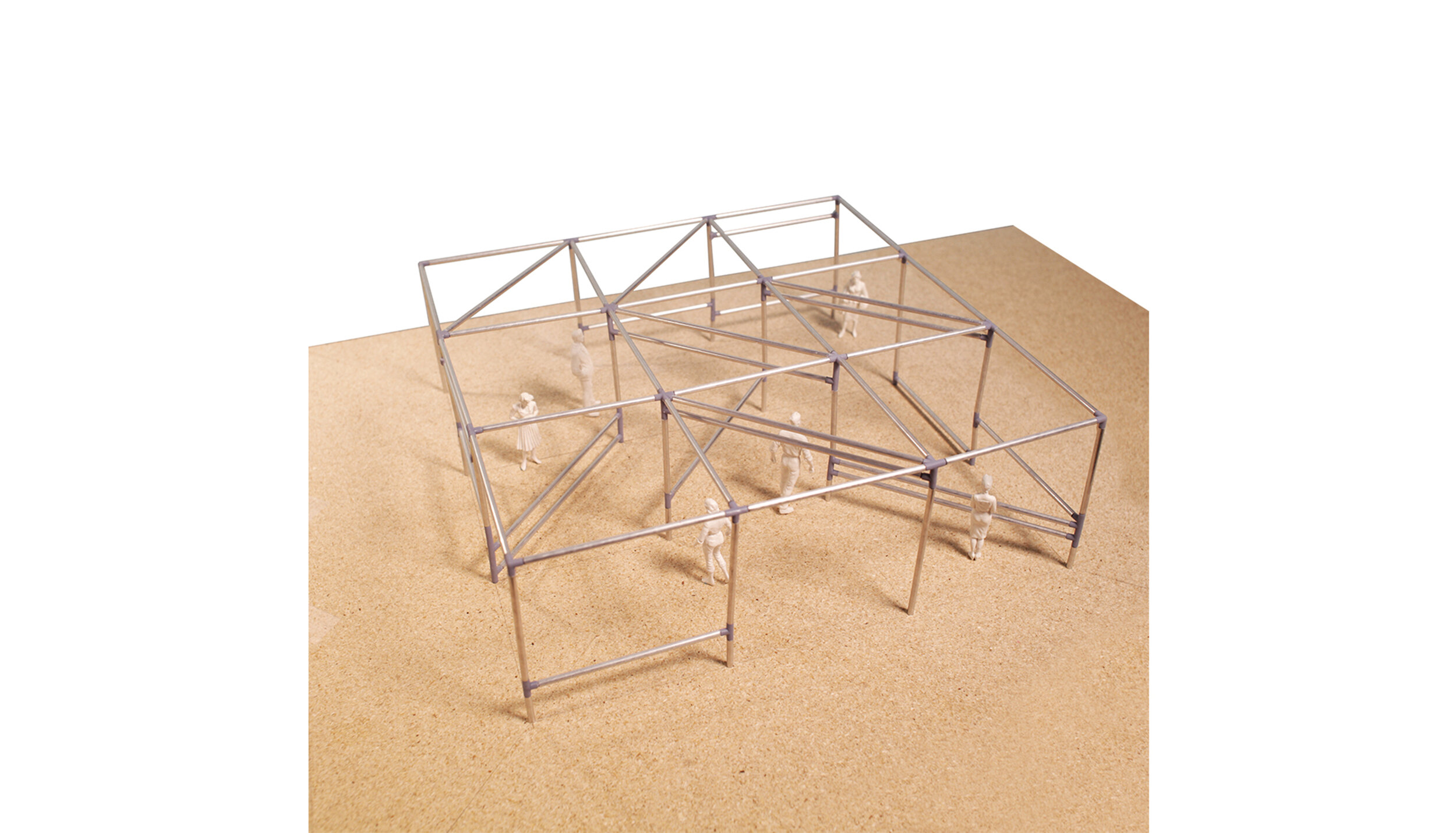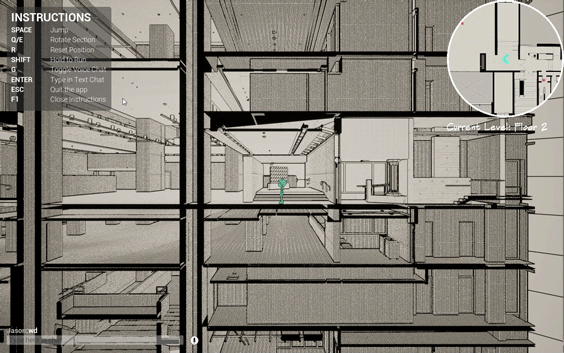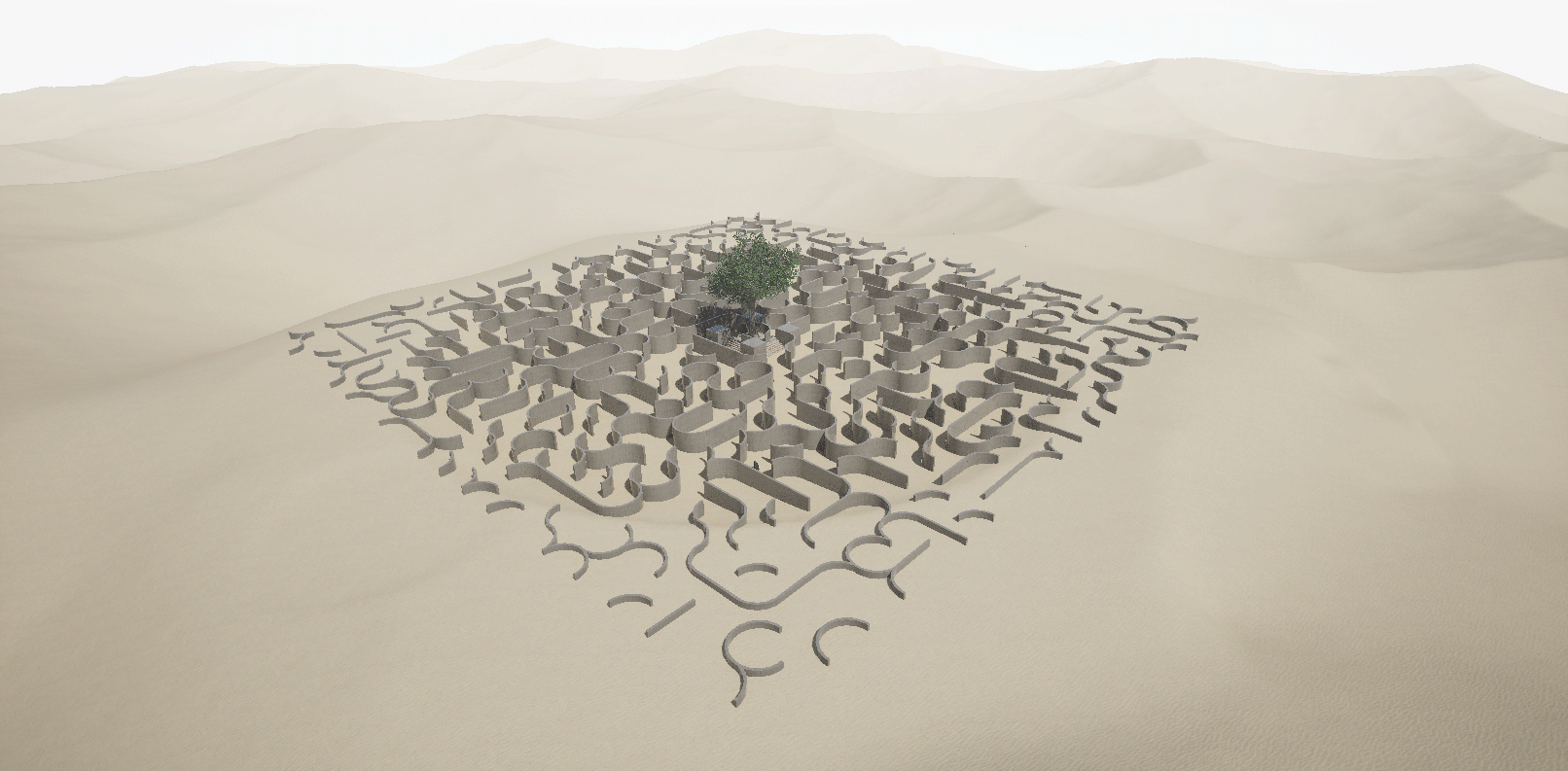4-Square HOUSE Augmented reality
2022
Augmented reality has become a way for our practice to bring more elements of lived experience into our projects in the form of nature and atmosphere generated by the interaction of architecture with its context. While AR only permits a simulation of these relationships, they are a power new form of representation opening up new horizons for architectural representation. The 4-Square House AR maquette was exhibited at the Cooper Union in the Model Behavior Exhibition curated by Log.
Augmented Reality model on exhibition at the Cooper Union
Testing arduino to rotate model and building section mechanic… click to play.
Early occlusion testing with digital tree.
Early model tracking test.
VISUALIZATION & COMPUTATION
YALE UNIVERSITY
“Unrealized” asked students to engage with unrealized or no longer extant works of architecture from across generations, traditions, and cultures. The works are given new life based on historical research and analysis to be presented using new forms of architectural representation such as mixed reality, gaming environments, and cinematics. 1019c Visualization & Computation is a required Summer course for M. Arch 1 students at the completion of their first year at the Yale School of Architecture.
SMALLACRE (by Gabe Darley)
ZAHA WORLD (by Mesut Sallah)
PIRANESI CARCERI (by Colin Morse)
A WALK THROUGH A CHINESE HAND SCROLL (by Jinrui Zhang)
PAUL VIRILIO BUNKER ARCHEOLOGY (by Silas Newman)
MANIFOLD
Augmented Reality Experiential Models
The sawtooth roof provides access to natural light and to place emphasis on the experience of the architectural surface of the ceiling with the thought that all interior surfaces, but the ceiling above all, represents the area of greatest potential contradicting the current paradigm of architectural design that focuses on the outer surfaces of buildings. A return to the inside out approach demands new forms of representation to access the full potential of the ceiling and interiority as the locus of architectural experience. Our experimental model is a physical worm’s eye maquette and uses digital design elements to condition interior spaces from lighting, views, and attractors in the form of objects within the space. Further, it leverages basic AI to use NPC’s (non-player characters) to respond to various stimuli within the spaces of the model.
WA.K Studio Dev. Team: Beom Jun Kim & Howard Timlin
Physics test of NPC response to gravity & interacting with the movement of the physical model.
Tracking & occlusion test (virtual sky)
water temple level
Augmented Reality Game Development
Other Places has become a catch all term for our virtual spatial experiments and gaming environments as expressed in this Water Temple, a proof-of-concept level for a hybrid puzzle game that combines physical models with virtual gameplay experienced through augmented reality. Navigation is controlled by moving or rotating the physical model relative to the camera position on the smart device which is used to overlay digital information on the model as well as controlling other aspects of gameplay. Other virtual assets can be triggered through player interaction and levels can be changed by introducing new physical models which can be purchased, made, or 3D printed. The model used for the demo was cast from a 3D printed mold.
WA.K Studio Dev. Team: Beom Jun Kim & Howard Timlin
digital mobius
Mexico City, Mexico
2020
Conceived of as an interplay between data and architecture, our submission for the Mextropoli 2020 pavilion converts the very surface of architecture as the space of information gathered over the duration of the festival including social media posts, tweets, selfies, and search engine results. The surface forms a continuous loop like Mobius strip upon which an incessant and ever changing stream of information is displayed.
virtual a&a
YALE UNIVERSITY
The Virtual A&A is a throwback to the original name of Rudolph Hall, the building that houses the Yale School of Architecture originally designed by Paul Rudolph. This project to virtualize Rudolph Hall was set against the backdrop of the COVID-19 pandemic and intended to provide a multi-player social gaming experience for students who were attending architecture school remotely.
faux chaux
2021
UNREALIZED
“Unrealized” takes paper architecture to the level of speculative virtual spaces using game engines and virtual reality. Faux Chaux is Ledoux’s cemetery at Chaux with the application of new representations based on historical drawings.
VIRTUAL FUTURES
YALE UNIVERSITY
Virtual Futures is a seminar taught by Beom Jun Kim investigating the ways spatial computing, such as virtual and augmented reality, will impact the built environment and the architect’s role in the development of these new digital horizons in the form of narrative speculations of the future.
LATIN AMERICA MEMORYSCAPE (Antonio Velasco)
DATA FOREST (Ange Long)
PEARL DIVING ENGINE (Naser Al Fakhouri)
Desert of the (UN)Real
Unbuilt Gallery
WA.K Studio was invited to submit a metaverse project as part of an exhibition for virtual meditation spaces for the Unbuilt Gallery.
virtual, augmented & built realities
BARNARD + COLUMBIA ARCHITECTURE
As part of the Special Topics in Architecture (UN3312) series of seminars offered in the B+C A undergraduate architecture major, Beom Jun taught Virtual, Augmented & Built Realities in Fall 2019 and Spring 2021. Utilizing various XR tools overlaid onto drawings and physical models, students were asked to develop augmented reality applications that critically examine new ways that architecture can engage with the expanding virtual world. Below are some examples of student projects.
CITY IN THE AIR by Arata Isozaki (Shannon Hu & Julia Lin)
NO STOP CITY by Archizoom (Eli Duncan & John Kershner)
HOUSE OF THE FUTURE by Alison & Peter Smithson (Samantha Yoh & Ze Qui Dong)
SLOW HOUSE by Diller Scofidio (Sophie Sebuh & Emma Lewis)
aerial circus
Film for Desert Airport
2013
Combination of stop motion animation with digital assets recorded using a physical architectural model with Dragon Frame and arduino controlled camera & turntable.
PLAY ON COLOR
Winnipeg, Manitoba Canada
2015
Warmth in this warming hut is generated through play. The shapes are simple in geometry so that they invite the visitor to interpret their use. The arrangement of objects is constantly changing, sparking the visitor to move spontaneously from piece to piece or move the pieces themself. In the middle of winter, the the punch of color offers a respite from the white snow.
The colorful laminated fiberboard pieces are designed to nest within one another and can be easily transported to the site. Once arranged on the river, the shapes are conducive to any number of play activities, from sliding to seesawing and swinging, rolling to resting.
The pieces have no serious or practical purpose, instead they are meant for pure enjoyment, simply for colorful play.

